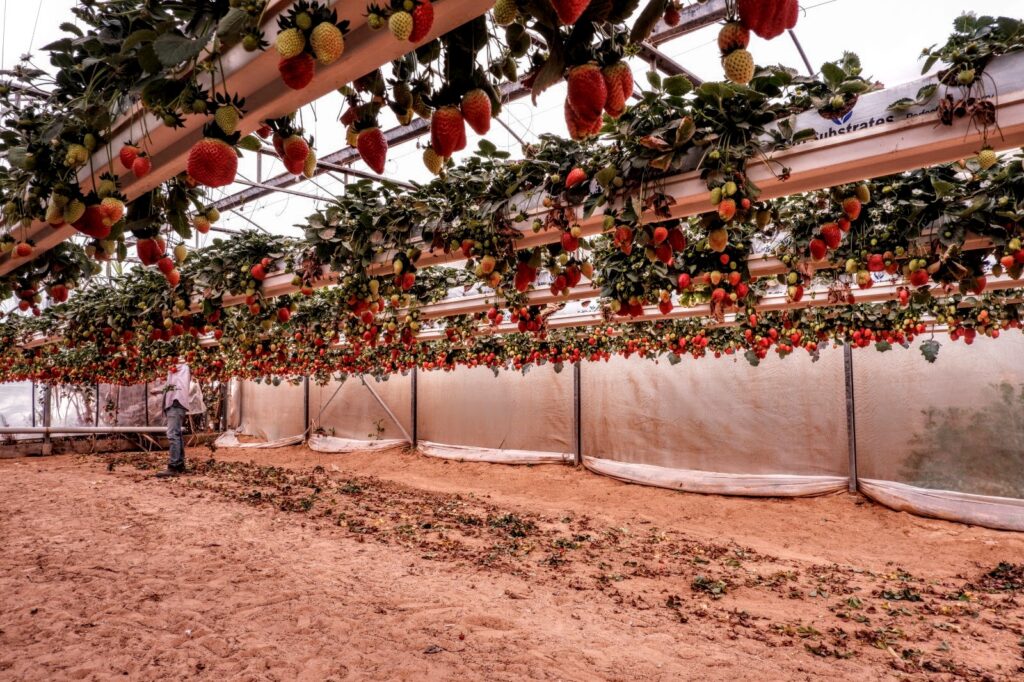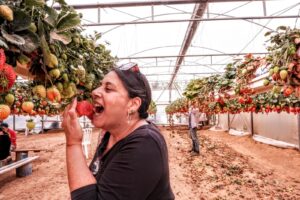
Hydroponics and Hanging Strawberries
Strawberries growing in the air? Yes, I was surprised to see these luscious red strawberries hanging over my head on a winter day tour of a hydroponics site in the south of Israel. Via a system of drip irrigation, the strawberries are fertilized and watered in sterile soil. No bugs, no pests. Just succulent red berries. And guess what: strawberries grow in the winter – another good reason to visit Israel in winter months.

Pest-free agriculture
Hydroponics is a key agricultural method in Israel. Vegetables grown hydroponically are pest- and bug-free since bugs and pests come from the soil – and hydroponic agriculture is soil-free. Orthodox Jews, a large percentage of Israel’s population, are prohibited from eating bugs that are hidden in fruits and vegetables. This growing method, which uses sterile soil and drip irrigation, eliminates pests. But as we know, people generally do not like bugs and pests in their produce – regardless of religious beliefs, so hydroponics is a win/win for all consumers.
All terrain agriculture
Besides in the desert regions and south of Israel, there are hydroponic agricultural sites in the Judean hills and on roof tops of urban centers.
Greater yields
Hydroponic agriculture produces greater yields and the plants grow faster. Besides ruling out the need for pesticides, hydroponic systems also take up less space, and require less weeding. In a country like Israel, where rainfall is only during the winter months, the fact that hydroponic agriculture uses 70-90 percent less water than conventional agricultural is a big bonus.
Multi-generational activity
 On a tour of Israel and the Holy Land, a hands-on visit to a hydroponics installation whether in an urban center or a desert location – in any season – is a tasty, yummy way to inform travelers of all generations, as well as create lasting memories of yet another aspect of Israel.
On a tour of Israel and the Holy Land, a hands-on visit to a hydroponics installation whether in an urban center or a desert location – in any season – is a tasty, yummy way to inform travelers of all generations, as well as create lasting memories of yet another aspect of Israel.
Inquiry Form
Contact Form for Custom Israel Tours


